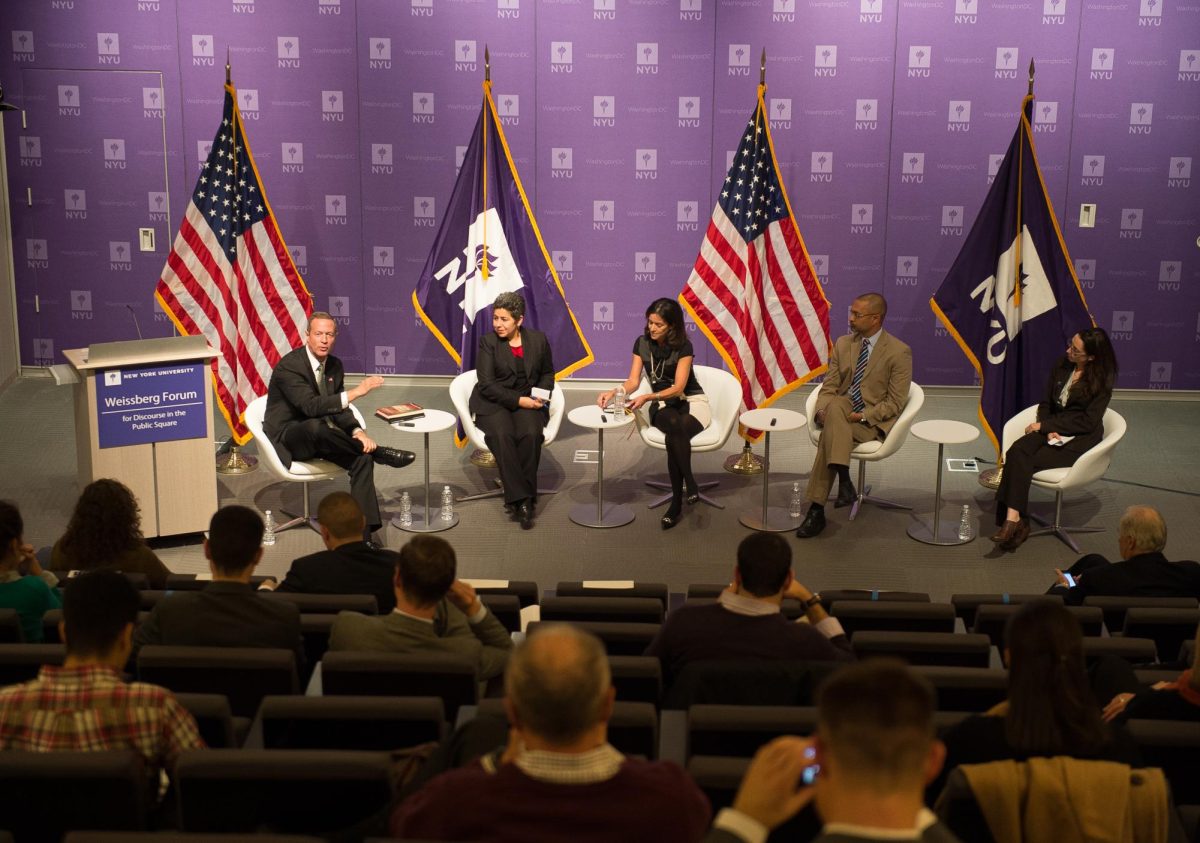Do I know everything about disability? Absolutely not. But if I know one thing, it’s that too many people have let “accessibility” become a politically-charged debate word instead of an endeavor for a kinder world. So let’s talk about it, from the Delta Testing Center to the construction all over campus and all the public conversations and private restrooms in between.

1. Gender-neutral bathrooms are for everyone
This may not sound like an accessibility hot-take, but let’s consider: publicly-available, single-occupant restroom stalls. That’s ultimately what a gender-neutral bathroom is known to be by many in the United States. It seems that gender-neutral bathrooms are treated by many businesses and organizations the same way many disability stalls are — assuming only one gender-nonconforming or disabled person will need to pee at a time.
Regardless of implementation, more spacious single-occupant restrooms aren’t just a plus for those who don’t identify as a man or woman. They provide a private space for people to manage whatever chronic conditions they may need to. People with severe irritable bowel syndrome (IBS) who experience painful movements or individuals with heavy periods or periods associated with depressive episodes would surely benefit from having private locations to take care of themselves.
This isn’t to say all public restrooms must become single-occupant stalls —rather, that seeing more than one single-occupant stall in public spaces would surely be a net good. Even if you don’t have a chronic illness, you may experience an infection that requires you to treat and retreat it throughout the day. Wouldn’t it be easier to take care of yourself around campus if you had somewhere that, even for five minutes, felt like a private space?
2. DELTA Testing Center hates accommodations
Ok, so probably not a hot take by any means among students — -but, even removing exams from the equation —
-the DELTA testing centers aren’t landing in any of my good graces. And this is far from a critique of the staff, with whom I have had nothing but positive experiences. Rather, DELTA Testing Center’s rules make it closer to a surveillance state than anything academic.
I have seen firsthand and heard stories about sick students who were not allowed to bring tissues, and occasionally masks, when they were sick into the testing center. I have seen firsthand and heard stories of students who only realized the Disability Resources Office did not approve or send their accommodations right before their exam. And again, this is not a critique of the staff who, in almost every instance I have seen or heard of, have been sympathetic to the student’s concerns.
Rather, this is a plea to professors to listen to students when they ask to make alternative arrangements. Even if we ignore how tests are often imperfect means of judging comprehension and knowledge, DELTA still manages to take the worst parts — the pressure we put on ourselves, the stress of being watched, the anxiety of making sure you don
’t look like you’re cheating the time limit — and amplifies them for everyone, but especially students with disabilities.
Source? I’ve been to DELTA nearly 20 times, half of which prior to my treatment for ADHD and OCD.
3. Disability isn’t a bad word; stop acting like it is
Are you concerned that the word “disability,” may hurt the feelings of the person in reference — maybe someone who uses a wheelchair or has a speech disorder? Or, are you gossiping about someone behind their back? Maybe even using the word in a way that reveals you think less of them? Even using it in the same breath as “slow” or calling that person an “inspiration?” If this sounds like you, then maybe it’s not the word that’s the problem.
Looking at a very basic definition of “disability,” it means the inability to do something. More academic definitions of the term, like that of the American Psychological Association, consider disability from moral, medical and social perspectives.
Regardless of the definition you’re working with, “disability” is a neutral word and not one that inherently describes someone’s full capabilities. It is understandable that, if you feel uneducated regarding disabilities, you may be worried that saying ‘disability’ reflects a certain level of ignorance on your part. The best thing you can do is try to learn and remember that every disability is different, and that even folks with the same condition may experience it differently.
4. Campus construction has been all about aesthetics not students
Why are so many ramps tucked away? Why place steps in front of so many building entrances? Why are the most accessible routes from across campus either down Cates Avenue or Hillsborough Street —neither of which have particularly wide sidewalks —or through Stafford with only one wheelchair-accessible tunnel through the fume-filled Free Expression Tunnel?
As one of the few defenders of NC State’s brick-chic aesthetic, I can’t excuse the laziness in the design of our campus, especially amid the frequent and seemingly sporadic construction. I like to imagine a campus where parts of Cates Avenue and Dan Allen Drive were closed off from 8 a.m to 8 p.m to become pedestrian walkways. If th
at’s too much to ask, then it would at least be nice to have a published audit of all of the inaccessible routes and buildings on campus so students with mobility issues can plan ahead. At the very least, please sand down bumps in the sidewalk.

5. We all need assistance, don’t be a jerk about it
I like to imagine most of us understand that different people have different needs. Unfortunately, it feels all too common that I hear someone say, “I think they’re just using accommodations to avoid accountability and work.” But often, I’ve found that the accommodations can be so hard to obtain that some folks never even get them.
If you are willing to put in countless emails and meetings with various people across your entire time at State just to be in classes with microphones synced to your hearing aids, 20 minutes extra on an exam to properly read everything or to ensure you are in classes that begin and end during sunlight hours so you can navigate to class: you’re doing it out of necessity.
Disability is not a damning omen. If you have asthma or eczema, broken a bone or struggled to breathe due to a respiratory illness, you’ve experienced disability to some degree. And you may very well become disabled later on in your life due to arthritis, postpartum depression, Huntington’s or even an accident. But it should not take any of this for you to be compassionate and respectful.
And, if even after hearing all this, you still think someone else is getting an advantage you aren’t, then maybe you need to advocate for your own accommodation!







